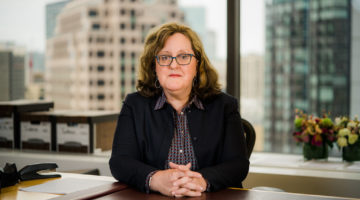As public health measures slow the spread of COVID-19, the Commonwealth and its municipalities have begun to ease restrictions on commercial activity, including construction. But it’s far from business as usual on job sites. With a only few exceptions (discussed below), all construction stakeholders must adhere indefinitely to Governor Baker’s “Mandatory Safety Standards” while on site. Stakeholders should familiarize themselves with all of these standards, but a few merit extra attention:
- A site-specific “COVID-19 Officer” must be designated for every job site. The officer is required to submit a written report each day to the owner’s representative certifying that the contractor and all of its subcontractors complied with the all COVID-related safety guidelines.
- For projects deemed “large [and/or] complicated,” local authorities may insist that the contractor prepare a site-specific risk analysis and an “enhanced” safety plan. Cities and towns also may require the owners of large projects to retain an independent inspector to ensure compliance with the Standards.
- Contractors working on small residential remodeling jobs are exempt from identifying a site-specific safety officer. Instead, so long as there are five or fewer people on site, such contractors may name a single safety officer responsible for multiple small job sites within the same municipality. That officer still must prepare a daily report for submission to municipal officials upon request.
- Workers must self-certify prior to each shift that they have no COVID-19 symptoms, nor have they been in “close contact” with any symptomatic individual.
- Social distancing measures must be strictly enforced. This means that meetings should be held remotely, whenever possible, and if meetings must occur face-to-face, they should be conducted outside. Workers are asked to bring meals from home to avoid contact with local food vendors. And multi-person activities – lifting heavy objects in pairs, for example – should be limited.
- Local authorities including building and public health departments are authorized to enforce the Standards and other written protocols. This includes the power to stop work and to demand that contractors prepare corrective action plans to address violations.
- Repeat violations may jeopardize a contractor’s prequalification and certification status for public work.
Contractors returning to work also must consider additional rules promulgated by cities and towns. In Boston, for instance, contractors must sign an affidavit certifying that they will comply with all applicable guidelines and acknowledging that the failure to do so could result in the City suspending the work or revoking the project’s permitting. In Cambridge, work is currently limited to essential projects, plus horizontal construction, city projects, affordable housing, and previously permitted building projects over 25,000 square feet. Additional easing of restrictions is expected over the next month.
Share with your network:

